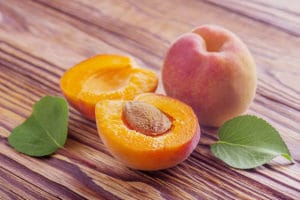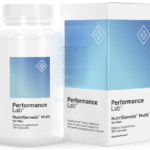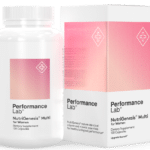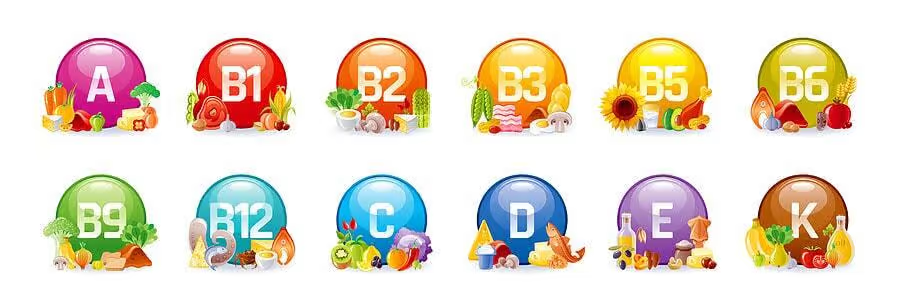Table of Contents
You’ve tried the latest, greatest nootropic or brain health supplements for memory and focus but it didn’t work like they said it would.
The new herbal nootropic supplement you saw on TV turned out to be a dud too.
But was it really a bad product? Because like all the other supplements you’ve tried, nothing ever works for you.
Chances are the product was good. And the ads were not just hype.
What you may not realize is many nootropics will only work when supported by the the best vitamin for memory that your body and brain need every day.
The same nutrients that are fundamental to healthy brain function and overall well-being. And how your brain works to maintain focus and encode and retrieve memories.
In this post you’ll learn the best vitamins for memory and focus.
And if you’re not getting enough of each of these vitamins in your diet, what you can do to make up the difference to enhance your cognitive health.
Best Vitamins for Focus and Memory
Vitamins are a group of organic compounds essential for human life but not synthesized in your body. So, you need to get adequate amounts of each of these vitamins from your daily diet. Or take them as a supplement.
Most of these vitamins are derived from plants. But you often get them from higher up the food chain including meat, dairy, and eggs. Either way, you these nutrients provide the right nutrition which promotes both gut health and supporting brain health and avoiding age related cognitive decline.
Vitamin A
Vitamin A is a fat-soluble vitamin and potent antioxidant. It comes in two forms; preformed Vitamin A (retinol, retinyl ester) which is  found in meat, poultry, fatty fish, and dairy products and is used directly by your body.
found in meat, poultry, fatty fish, and dairy products and is used directly by your body.
And proformed Vitamin A (carotenoids, beta-carotene) which is found in fruit and vegetables. But must be converted in your body to retinol and retinoic acid before it can be used.
Vitamin A is involved in long-term potentiation which is required to form memory. And retinoic acid is involved in neurogenesis, neuroplasticity, cell differentiation, and synaptic signaling.[i] All required for focus and memory.
Vitamin B1 (Thiamine)
Vitamin B1 (Thiamine) was the first B-Vitamin to be discovered. Hence, its name Vitamin B1.[ii]
You get thiamine from eating beef, brewer’s yeast, legumes (beans, lentils), milk, nuts, oats, oranges, pork, rice, seeds, wheat, whole-grain cereals, and yeast.
Thiamine in its diphosphate form (TDP) is a cofactor involved carbohydrate metabolism. Producing enzymes which are involved in the KREBS cycle and synthesis of ATP in mitochondria. You require thiamine for generating cellular energy and the downstream production of amino acids, nucleic acids, and Omega-3 fatty acids.
Thiamine deficiency has long been linked to memory deficits. Severe deficiency results in Wernicke–Korsakoff syndrome. One symptom of which is memory loss.[iii]
Vitamin B2 (Riboflavin)
The best food sources of Riboflavin are meat, organ meat, cheese, eggs, green leafy vegetable, beans and some nuts and seeds.
The two flavoprotein coenzymes from riboflavin, FMN (flavin mononucleotide) and FAD (flavin adenine dinucleotide) are essential to most enzyme processes in every one of your cells.[iv]
FAD is required to produce pyridoxic acid from Vitamin B6 (Pyridoxine) which is the form of Vitamin B6 your body can use. And it’s required to convert Vitamin A (retinol) to retinoic acid that your body can use. Critical for focus and memory.
FAD is also needed for the conversion of tryptophan to Vitamin B3 (niacin). FMN and FAD are also cofactors in the metabolism of fatty acids in brain cell membranes, the absorption and utilization of iron, and the regulation of thyroid hormones.
And Riboflavin is an essential part of ATP production in mitochondria. Not enough Riboflavin may result in lack of focus and memory loss.
Vitamin B3 (Niacin)
Vitamin B3 (Niacin, nicotinic acid) naturally occurs in foods like eggs, fish, meat, milk, peanuts, mushrooms, green vegetables, and yeast.
 Niacin is a precursor to the coenzymes nicotinamide adenine dinucleotide (NAD), and nicotinamide adenine dinucleotide phosphate (NADP).
Niacin is a precursor to the coenzymes nicotinamide adenine dinucleotide (NAD), and nicotinamide adenine dinucleotide phosphate (NADP).
NAD converts to NADH which is the primary carrier of electrons in the transfer of food from your diet into energy. This energy is stored as adenosine triphosphate (ATP).
Not enough NADH leads to ATP depletion, which can eventually lead to cell death.[v]
Niacin boosts the production of Nitric Oxide (NO) which relaxes blood vessels in your brain which increases cerebral blood flow.
Niacin affects cognitive function by stimulating the production of dopamine, norepinephrine, and serotonin. Neurotransmitters involved in focus and memory formation.[vi]
Niacin also increases Brain Derived Neurotrophic Factor (BDNF) and stimulates growth hormone. Needed for long-term potentiation for formation of long-term memory.[vii]
Vitamin B5 (Pantothenic Acid)
Vitamin B5 (Pantothenic Acid) is a precursor in the biosynthesis of Coenzyme-A (CoA) which is required for the synthesis of the neurotransmitters acetylcholine, epinephrine, and serotonin.
Adequate levels of acetylcholine are needed for focus and memory.
Foods rich in pantothenic acid include animal organs (liver and kidney), fish, shellfish, milk products, eggs, avocados, legumes, mushrooms, and sweet potatoes.
Vitamin B6 (Pyridoxine, P-5-P)
Vitamin B6 (Pyridoxine, P-5-P) is a required coenzyme for the synthesis of dopamine, epinephrine, GABA, melatonin, norepinephrine, and serotonin.[viii]
Foods rich in Vitamin B6 include bananas, beef, chickpeas, pistachios, pork, potatoes, and turkey.
Even mild deficiency in Vitamin B6 results in down-regulation of most major neurotransmitters.
Leading to poor sleep, behavior, inability to focus or encode memory, cardiovascular function, and the loss of hypothalamus-pituitary control of hormone secretion.[ix] Resulting in increased anxiety, depression, fatigue, and pain.
Vitamin B7 (Biotin)
Vitamin B7 (Biotin, vitamin H) is a coenzyme for carboxylases involved in the metabolism of fatty acids, amino acids, and glucose.[x]
Biotin influences the use of branched-chain amino acids (BCAAs) in the synthesis and release of serotonin from tryptophan, and tyrosine from phenylalanine.[xi]
As a coenzyme, Biotin is required for the synthesis fatty acids for energy production in the brain. Lack of adequate Biotin can result in fatigue and inability to focus.
Biotin is needed to produce tyrosine which in turn provides dopamine in your brain. Lack of dopamine means poor memory and recall.
Biotin is found in foods such as organ meats, egg yolks, some dairy products, and some fruits and vegetables.
Vitamin B9 (Folate)
Vitamin B9 (Folate) is involved in gene expression, amino acid synthesis, myelin synthesis, and is required for the synthesis of the  neurotransmitters dopamine, epinephrine, norepinephrine, and serotonin.
neurotransmitters dopamine, epinephrine, norepinephrine, and serotonin.
Green leafy vegetables, or ‘foliage’ are rich sources of folate. And how ‘folate’ got its name. You can also get folate from citrus fruit juice, legumes, fortified foods, and liver.
Many neurohackers, including doctors and other health professionals confuse folate with folic acid. They are NOT the same.
For a detailed explanation of why folate vs folic acid is such a big deal, see my full review of Vitamin B9 (folate). It covers how your body uses both compounds. And what happens if you have problems with the MTHFR gene.
Folate is critically important for the fully optimized brain. And research shows that folate levels even in the “normal (RDA) range” may be inadequate for methyl donation and neurotransmitter synthesis.
Supplementing with folate or a multivitamin with adequate levels of folate may help alleviate depression, improve focus and memory, and ward off dementia.
Vitamin B12 (Cobalamin)
Vitamin B12 is a cofactor in the synthesis of neurotransmitters dopamine, GABA, norepinephrine, and serotonin. Affecting focus, cognition, memory, and mood.
Foods rich in Vitamin B12 include fish, shellfish, meat (especially liver), poultry, eggs, milk, and milk products. The two best sources by far of Vitamin B12 are clams and liver.[xii]
You cannot get adequate amounts of Vitamin B12 from plants. Vegetarians and vegans are especially in danger of B12 deficiency.
Plant foods contain analogs of B12 which are similar to, but not the same as, Vitamin B12. They bind to B12 receptors and block your intake of true B12.
Trying to get your Vitamin B12 from yeast products like Red Star Nutritional Yeast or Marmite is also problematic. These products do not naturally contain B12 but are fortified with it.
Food grade Vitamin B12 comes as methylcobalamin or adenosylcobalamin which are the forms of B12 naturally occurring in your body.
Avoid other forms including cyanocobalamin which produces a small amount of cyanide each time you consume it.
Vitamin C
Vitamin C (L-ascorbic acid) is a water-soluble nutrient and electron donor critically important for the healthy brain. The active form of Vitamin C is L-ascorbic acid.
Vitamin C is a cofactor in the synthesis of norepinephrine from dopamine. It induces the release of acetylcholine (ACh) and norepinephrine from synaptic vesicles on neurons.
Which means Vitamin C is involved in neuronal signaling transmission required for optimal focus and memory.
And Vitamin C induces the expression of brain-derived neurotrophic factor (BDNF). BDNF is needed for long-term potentiation which helps form long-term memory.[xiii]
Vitamin D3
Vitamin D3 (cholecalciferol or calciol) is the fat-soluble steroid hormone form of the “essential” Vitamin D.
Vitamin D3 is involved in the synthesis of GABA, glutamate and glutamine, and dopamine in your brain.[xiv]
Vitamin D3 is also involved in neuromodulation, regulation of neurotrophic factors, neuroprotection, neuroplasticity, and brain development.
Vitamin D has been shown to play a critical role in neuron cell growth and differentiation, neuron transmission, and the neuroplasticity that’s essential for optimal focus and memory.
Vitamin D is mostly made in your skin from sun exposure. Not from food like most of our other vitamins. When Ultraviolet-B (UVB) light from the sun strikes your skin, your body synthesizes Vitamin D3.
Vitamin E
Vitamin E includes a group of eight structurally related, fat-soluble, chain-breaking antioxidants: four tocopherols and four tocotrienols: α (alpha), β (beta), γ (gamma) and δ (delta).
Vitamin E regulates the activity of multiple signal transduction enzymes which affect gene expression. Which in turn affects processes including neurogenesis and taming inflammation.
Other genes affected by adequate Vitamin E levels prevent Alzheimer’s progression, hormone metabolism, apoptosis, growth factors and neurotransmission.
Lack of adequate Vitamin E has been shown to downregulate genes leading to myelin and synapse loss, disrupting vesicle transport needed for neurotransmitter signaling, and is detrimental to glial functions.
One recent large study demonstrated that Vitamin E supplementation delayed the progression of Alzheimer’s progression. Even in moderately severe Alzheimer’s patients.
Vitamin E contributes to optimal focus and memory throughout your life. But the only effective Vitamin E supplements are food-sourced containing all four tocopherols and four tocotrienols.[xv]
Vitamin K
We have two forms of Vitamin K: K1 (phylloquinone) and K2 (menaquinones). The two main types of Vitamin K2 are MK-4 and MK-7.[xvi]
You get Vitamin K2 primarily from meat like chicken, pork, beef, egg yolks, milk, and cheese. K2 is higher in meat and dairy products from grass-fed animals. And you get Vitamin K1 from green leafy vegetables.
Vitamin K is essential for the synthesis of sphingolipids which contribute to the formation of the myelin sheath insulating axons in your brain. Sphingomyelin plays a significant role in cell signaling pathways.[xvii]
Several proteins in your brain are dependent on Vitamin K. For example, protein Gas6 is actively involved in apoptosis, mitogenesis, neuron, and glial cell growth.
One recent study showed increased dietary intake of Vitamin K is associated with better focus and memory.[xviii]
 Choosing the Best Vitamin for Memory and Focus
Choosing the Best Vitamin for Memory and Focus
After diving into the data and clinical evidence, it’s clear multiple vitamins are required for optimal focus and memory.
It is also clear that vitamin dosage is important. How much of each vitamin should you use for optimal focus and memory?
For the conscientious and dedicated biohacker, following the government “Recommended Daily Allowance” (RDA) may not be a good idea.
Because the latest RDA are what public health ‘authorities’ consider to be the minimum of each nutrient to sustain life.
Not necessarily to make you feel great and perform your best. Just to keep you alive.
If you are striving for optimal health and cognition, consider the clinical data combined with how you feel to determine how much of each vitamin you need every day.
Quality matters as well. The shelves are packed with an overwhelming choice of vitamin supplements. Most of them are cheap synthetics. And not what your body and brain consider ‘food’.
I encourage you to read my article called “How to Select the Best Multivitamin for Brain Function” on what to look for when it comes to quality.
Finally, you can buy each vitamin as a separate supplement. Expensive and inconvenient.
Better to choose a high-quality vitamin/mineral supplement at the correct dosage. It’ll save you time and money.
 I recommend the Performance Lab NutriGenesis® Multi for men or women.
I recommend the Performance Lab NutriGenesis® Multi for men or women.
I’ve been using this multi daily for the last two years. And feel physically better and mentally sharper since I started using it.
 Your brain needs each of the vitamins detailed in this post for optimal focus and memory. Some you’ll get from a healthy diet. Preferably organic vegetables and fruit, and grass-fed meat products.
Your brain needs each of the vitamins detailed in this post for optimal focus and memory. Some you’ll get from a healthy diet. Preferably organic vegetables and fruit, and grass-fed meat products.
But what you don’t get from food must be supplied by supplementing with a high-quality multivitamin every day.
You will feel better and your nootropic stack has a more likely chance of providing the benefits you were looking for.







Join The Discussion - 19 comments
Nina
October 2, 2025
Another very nice analysis about vitamins related to memory and concentration.
I would like to ask Mr. David if it is in your program to include issues related to probiotics (specific strains), because I believe that with the modern diet there are many problems related to the absorption of vitamins and beneficial substances from the intestine.
Thank you for the valuable help I have received from you.
David Tomen
October 4, 2025
Nina, I agree with you 100% about our modern diet. But the problem is we have well over 1,000 different species of probiotic strains in our gut. How do we know which are low are need support? Without a stool sample and a lot of expensive testing, I have found a better way to support our gut. And achieve the cognitive benefits we’re looking for.
I discovered prebiotics several years ago. A high quality prebiotic is food for our microbiome. Feed our gut and let the built in intelligence of our gut figure it out. Turns out studies back this idea. And have found that a good prebiotic will increase the beneficial bacteria in our gut and decrease the bad ones. And it works. I highly recommend starting with this article: https://nootropicsexpert.com/performance-lab-prebiotic-review/
Aaron
August 21, 2024
If I plan to make a diet heavy in leafy greeny vegtebles eggs and meat etc which already provides me with much vitamin B, do i still need a B complex on top of Nutrigenis multi for men and if so should I go for a 50 complex instead of 100.
at what point do i have to concern over having too much
Thanks!
David Tomen
August 23, 2024
Aaron, it depends on your age. If you are over 50 then you may need both the Multi and B-Complex because the human body does not absorb these nutrients as well as it did when we’re younger. And because of industrial farming there is a very good chance you’re not getting the nutrients from food like you think you are.
Aaron
August 25, 2024
I’m 22 do i have to worry about vitamin over kill If im taking the multi a 50 B complex and eating a diet high in greens chicken and eggs? also I notcied that nutrigenis multi is low dosed I know it makes up for it in Bioavailibilty But 4mg for B vitamins still seems very low just curios your thoughts on that.
David Tomen
August 25, 2024
Aaron, at 22 it is highly unlikely that you need both. I suggest using the Multi to make sure you are getting every vitamin and mineral your body needs. But you likely do not need an additional B-Complex.
Aaron
August 26, 2024
Thanks for telling me!
Its just the Nutrigenis multi seems so Low dosed! How can 4 MG B vitamins cut it? as well as every other vitamin in it is significantly lower than other quality Multis I am seeing. how far does that BIOavailability go?
David Tomen
August 26, 2024
Aaron, it has not been published yet but I spoke with the CEO of Performance Lab a couple of weeks ago. And they have recently conducted a clinical trial which showed consistent daily use of the Performance Lab Multi for a month resulted in optimal levels of each vitamin and mineral. I’ll include a link to that study just as soon as it’s published.
But my own experience with this Multi – I remember the first day I tried it. And I felt it. That has never happened before with a Multivitamin supplement. It took me by surprise and it is honestly still the best Multi I’ve ever used.
Martin Vinranke
May 10, 2024
Hi!
Attention to not supplement with Folic acid but Methyl folate!!!
And not to supplement with cyanocobalamin B12 but Methylcobalamin!!
Methylated B vitamines is better!
David Tomen
May 12, 2024
Uh, Martin? Did you just show up? I’ve been preaching that for the last 8 years. You must be new here. If you are then welcome!
Martin Vinranke
September 7, 2024
Hi David! I am not new to your channel, i have followed you for many years! Maybe 8…
Like your site and i have directed many friends and colleagues here.
David Tomen
September 8, 2024
Martin, thanks for letting me know. I do appreciate your support and recommendations. Deeply appreciated.
Lize
September 14, 2021
I struggle with Vit B supplements. It feels like I had too much caffeine. Will this supplement do the same?
David Tomen
September 14, 2021
Lize, B-Complex supplements typically have much higher dosages of each ingredients. The ingredients in the Performance Lab Multi while higher than RDA are not at the elevated amounts you get in a B-Complex supplement. And the daily dose if 4 capsules. So if you find that 4 is too much at one time you could split the dose in half and take 2 caps in the morning and 2 caps in the afternoon.
Darcy
May 27, 2021
The first graphic just makes me hungry for M&Ms.
Fernando
November 30, 2020
Hi David consuming high amounts of Vitamin K1 can meet the daily demand for Vitamin K2?, How effective is the conversion of vitamin K1 to K2?
David Tomen
November 30, 2020
Fernando, the science shows that K1 is not the best form of Vitamin K because only 10 – 15% is absorbed before it is excreted. VK2 has a better absorption profile in comparison to VK1. And MK-7 seems to have the most potent efficacy in terms of absorption and bioavailability.
This clinical study goes into deep detail if you are interested: https://www.ncbi.nlm.nih.gov/pmc/articles/PMC7353270/
Fernando
November 30, 2020
Thanks David, to be sure, it is still necessary to consume Vitamian K1 if the diet is insufficient of it or our body could be fully benefited only with the supplementation of vitamin K2 without the need for VK1?
– I would also like to know your opinion, please, about the rule of drinking 8 glasses of water a day, is it true or does it actually cause overhydration?
David Tomen
December 2, 2020
Fernando, Vitamin K2 as long as it contains MK-4 and MK-7 subtypes.
And 8 glasses of water per day seems like an over-simplification to me. It’s how much you body needs to stay hydrated. And that varies from person to person.